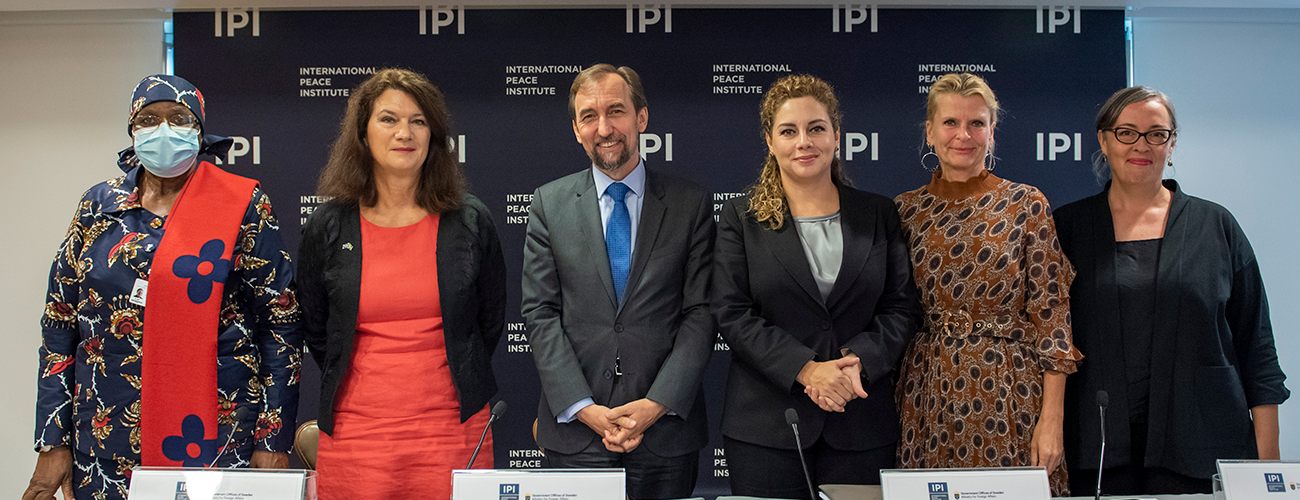In partnership with the Government of Sweden, IPI cohosted a high-level discussion entitled “Securing Women’s Leadership in ‘Post-Pandemic’ Life” on September 23rd. The event highlighted the leadership of women and explored how this can be amplified and formally recognized. It also built upon IPI’s 2020 Women, Peace and Leadership Symposium which focused on women’s vital contributions to the crisis response across the globe.
The COVID-19 pandemic has both revealed and exacerbated global inequalities, especially along gender lines and not least in already challenging contexts characterized by fragility and conflict. Despite this, little attention has so far been given to the long-term negative consequences that the crisis risks having for women’s political and peacebuilding leadership as well as economic empowerment and human rights.
As the global community continues to grapple with the recovery and simultaneously seeks to build resilience against future crises, there is a unique opportunity to develop ways to rectify structural gender inequalities and explore how women’s leadership can be amplified and formally recognized both in general and in conflict situations. This includes harnessing the experiences from the pandemic itself where innumerable women have played, and continue to play, key leadership roles in ushering their communities through the crisis.
Speakers:
H.E. Ms. Ann Linde, Minister for Foreign Affairs of Sweden
H.E. Ms. Olta Xhaçka, Minister for Europe and Foreign Affairs, Albania
H.E. Ms. Netumbo Nandi-Ndaitwah, Deputy Prime Minister and Minister of International Relations and Cooperation of Namibia
Ms. Katrina Fotovat, Senior Official, Secretary’s Office of Global Women’s Issues, U.S. Department of State
Dr. Sarah Taylor, Women, Peace and Security and Humanitarian Action Compact, UN Women
Ms. Åsa Regnér, UN Assistant Secretary-General and Deputy Executive Director of UN Women
Moderator:
Zeid Ra’ad Al Hussein, IPI President








